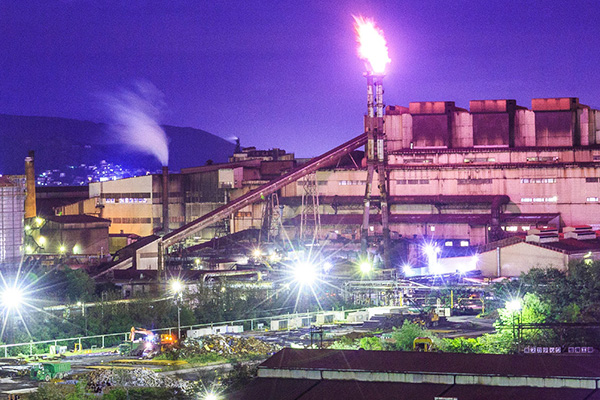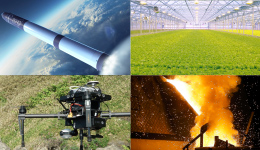Division of Production Systems Engineering

This course covers a broad range of content, from fundamental technologies such as material, mechanical and physical engineering, which are essential to manufacturing, to advanced systems technologies such as aerospace systems and next-generation robots.
Courses
Course of Mechanical Engineering
This course covers fundamental academic studies in the many required fields relating to mechanical engineering and mechanical systems, as well as diverse knowledge, comprehensive technological ability and flexible application.
Students will learn to apply advanced, specialized knowledge pertaining to environmental and energy technologies, machining and manufacturing technologies, and element and system technologies, and will emerge ready to expand the boundaries of manufacturing and industry and take these fields to new heights.
Course of Robotics
Robotics brings robots into practical use, not only in a diverse range of manufacturing and industry sectors, but also in the home, in medical care, in nursing care, and at disaster sites.
Starting from a core program of academics, robotics goes on to encompass numerous related engineering fields, and is a compilation of advanced technologies that come together in an integrated blend.
Developing technology for multi-functional, high-performance robots requires fundamental knowledge in control technology, mechatronics, sensing technology, engineering design, element technology, and applied skills such as system integration.
Students will acquire the necessary skills to create the intelligent machine systems that will lead the way to next-generation robots supporting key industries, and intelligent machine systems that will be making a contribution to our social lifestyles in the near future.
Course of Aerospace System Engineering
Aerospace system engineering can be applied in the engineering strategies of countries promoting environmentally-friendly innovation, as well as being a key technology field.
Engineers in this field create sophisticated and comprehensive systems that bring together a broad range of state-of-the-art technologies that include aerodynamics, propulsion engineering, structure and materials engineering, induction and control, and many others, in environments far harsher than our terrestrial environment.
Students will gain a thorough understanding of the interrelationship between systems and element technologies, with the ultimate aim of establishing concrete aerospace systems. In addition, they will master fundamental knowledge of various element technologies, ultimately acquiring the skills needed to build advanced systems that integrate these technologies.
Beyond this, in order to cultivate high-level, specialized engineers and researchers ready to serve as effective team players on the global front, we work with JAXA, private companies and other external organizations and make full use of the geographical advantages of Hokkaido, creating coursework that utilizes a diverse spectrum of research facilities in both the academic and non-academic realms, such as the Aerospace Systems Research Center.
Through these curricula, we educate students in cutting-edge research that will give them access to countless career paths, at the same time cultivating human resources with practical capabilities.
Course of Materials Science and Engineering
The activities in which humankind engages are supported by the consumption of resources and energy, and as society continues to develop, we are facing urgent issues such as resource depletion and environmental problems on a global scale.
In this course, students acquire advanced, specialized knowledge pertaining to the design, development and evaluation of materials.
They can then organically integrate the knowledge gained in these areas to develop advanced materials.
Through this approach, we cultivate human resources who can help build systems that are sustainable from a materials science and engineering standpoint, and can find solutions for energy and environmental problems.
Course of Applied Physics
In this course, students will gain an understanding of the importance of physical engineering and solid-state engineering with respect to next-generation, advanced materials like magnetic materials, dielectrics, superconductors, optical materials and biomaterials, as well as the possibilities for the application of these.
They will learn all aspects of this specialized knowledge, from the fundamentals to application.
Students will come away with the ability to analyze and solve complex issues, and a finely-honed awareness of problems, and will be able to autonomously conduct ongoing research and development.
We give them the spirit to seek truth and the motivation to develop technology, so that they can meet the needs of a society facing increasing complexity and sophistication in environmental problems, energy problems and other issues. The result is human resources capable of helping to build a sustainable society.




